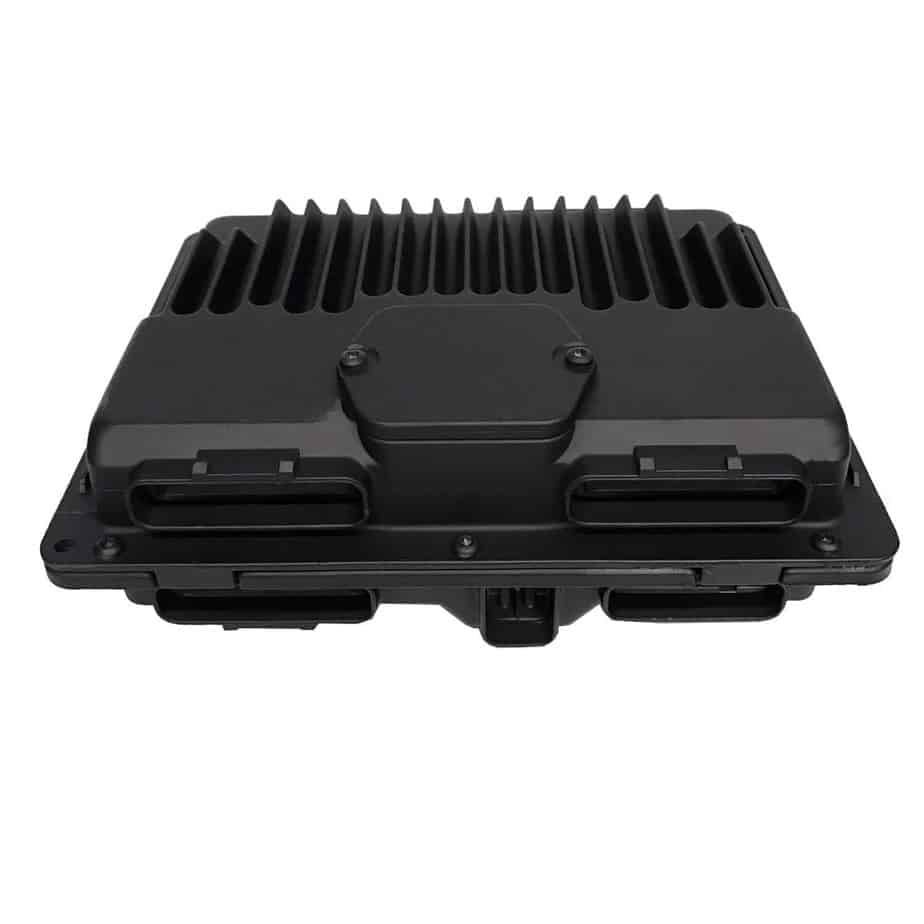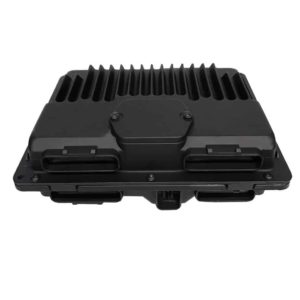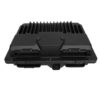Is Your Late 90s GM Truck or SUV Driving You Crazy?
If you’re behind the wheel of a 1998-2000 Blazer, Jimmy, S10, or another GM vehicle from that era, you know they’re tough workhorses. But when they start acting up, the problems can be maddeningly intermittent and hard to pin down. One minute it runs fine, the next it’s stalling at a stoplight, shifting hard into second gear, or refusing to start at all. You’ve likely already replaced a few sensors, cleaned the throttle body, and are still scratching your head.
Over my 20+ years in the garage, I’ve seen this exact scenario play out hundreds of times. The root cause is often not a bad sensor, but the very brain of the operation: the Powertrain Control Module (PCM). Located in the harsh environment of the engine bay—often on the right-hand side near the fender—these modules are constantly subjected to heat, cold, and vibration. After two decades, the delicate internal circuits and solder joints simply start to fail.
Common Symptoms of a Failing GM PCM
A failing PCM doesn’t always throw a clear ‘P0601 Internal Controller Failure’ code. More often, it causes a cascade of confusing secondary issues because it can’t properly interpret sensor data or command the engine and transmission. If your vehicle is showing any of these signs, your PCM is the likely culprit:
- ✔ Inexplicable stalling, especially when coming to a stop or at idle.
- ✔ Harsh or erratic automatic transmission shifting.
- ✔ A ‘No Communication’ error when you connect a scan tool.
- ✔ The engine cranks but refuses to start, even with good fuel pressure and spark.
- ✔ Random Check Engine Light (CEL) with codes for various sensors (like TPS, MAF, or O2 sensors) that check out fine when tested individually.
- ✔ Poor fuel economy or a noticeable loss of power.
- ✔ Problems with the anti-theft system (Passlock/VATS), causing a no-start condition.
Expert Pro Tip: Check Your Grounds First!
Before you spend a dime, do yourself a favor and check the main engine and body ground straps. On these GM trucks, a corroded or loose ground can cause voltage issues that mimic a failing PCM. I’ve seen many mechanics mistakenly condemn a good module when the real problem was a $5 ground cable. Clean the contact points to bare metal and tighten them securely. If your bizarre electrical problems persist, then you can be confident the PCM is the issue.
The Guaranteed Solution: A VIN-Programmed PCM
This isn’t just a used part pulled from a junkyard. This is a fully tested and verified Powertrain Control Module that we program specifically for YOUR vehicle using your VIN. This is the only way to ensure a proper, lasting repair.
Why is VIN-programming so critical for these vehicles? Because the PCM controls everything based on the original factory build:
- ✔ Engine & Fuel System: It’s calibrated for your specific engine (4.3L, 5.0L, 5.7L) and fuel injection system. A mismatch can cause poor performance and fuel trim issues.
- ✔ Transmission Strategy: Shift points and pressures are tailored to your transmission and gear ratio. The wrong programming leads to the harsh shifting and potential transmission damage you might be experiencing now.
- ✔ Anti-Theft System (VATS/Passlock): The PCM must be synced to your vehicle’s security system. A non-programmed module will result in an immediate no-start condition.
- ✔ Emissions Equipment: All emissions components (EGR, EVAP) are managed by the PCM based on your vehicle’s specific configuration.
We handle all of that for you. We load the latest GM-certified software onto the module before it ships. When you receive it, it’s ready for a straightforward installation. In most cases, you will need to perform a simple security relearn procedure (which takes about 30 minutes and requires only your ignition key) to sync the module to your truck. This part is a direct replacement for service numbers 16263494, 16265035, and others listed in the fitment guide.
Stop chasing ghosts in your electrical system. A properly programmed PCM is the definitive fix for these complex issues, restoring the performance and reliability you depend on. Provide us with your VIN at checkout, and we’ll send you a brain that’s ready to get your truck back to work.


